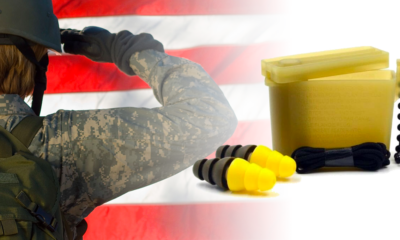Article Snapshot: Delving into 2024's latest baby formula lawsuit update: a $60 million verdict and…
The National Traffic and Motor Vehicle Safety Act has been utilized by the Department of Transportation’s National Highway Traffic Safety Administration since 1966 to ensure manufacturers produce vehicles that adhere to safety standards and recall vehicles that are defective and do not meet those standards. Since this act, there have been 390 million vehicle recalls, 46 million tire recalls, and 66 million pieces of motor vehicle equipment.
According to The U.S. Code for Motor Vehicle Safety, a “defect” in an auto product or part as any defect in performance, construction, a component, or material of a motor vehicle or motor vehicle equipment. Such defects create a risk to both driver and passenger safety.
Types of automotive product defects
There are two ways in which an automotive product defect can come about:
Manufacturing defect of car or car part: A manufacturing defect exists in one specific car rather than the entire line of cars within that make or model. Failing to inspect or discover a faulty error during the manufacturing process could lead to a defect.
Defectively designed car: This occurs when all cars that are a specific make or model have been defectively designed, and the design of the car poses an unreasonable safety risk.
Common defects in-vehicle components and equipment include:
- Steering systems that break suddenly causing loss of vehicle control
- Defective airbags
- Defective tires
- Auto roof crush
- Defective seatbelts
- Defective gas tanks
- Leakage to fuel system components
- Sticking accelerator controls
- Engine cooling fans that break
- Wiring systems that increase the chance of fire
- Defective steering components
- Defective braking systems
Who should I sue for my defective auto product?
When manufacturing a vehicle, several companies may bear some responsibility for the liability of a defective car part. The party that you can hold responsible will depend on what company manufactured the product that malfunctioned. Similarly, fault can fall on the company or companies that were responsible for assembling and testing for safety and federal compliance.
Product liability is the legal responsibility to the consumer that every vehicle manufacturer must ensure the auto parts they sell are safe. Possible defendants include the following:
- Car manufacturer. The manufacturer should always be considered. When it comes to motor vehicles, sometimes more than one manufacturer could be liable. In some cases, the car manufacturer fails to issue a recall notice, or they fail to warn of the danger of a safety defect they are aware of.
- Parts manufacturer. Car manufacturers use parts that are made by a different company. The maker of the car parts may be responsible for causing the collision and your injuries.
- The middleman. Any other party that participated in the chain of distribution will also be considered. Sometimes parts pick up defects when handled by a shipping company, where the parts are stored, or the company that distributed the parts.
The cause of the crash will need to be examined closely to determine who holds liability. It may also be possible that more than one party was responsible for the defective car part. It is important to factor in every possible option when it comes to determining liability for a successful outcome.
Defective car part class-action lawsuit
In some design defect cases, there may already be an existing class action lawsuit that you can join. For example, an experienced lawyer may already be prosecuting the manufacturer for certain models having defective tires.
Certifying a class action is a complex process requiring extensive legal knowledge and experience. Defective product claims require an intricate analysis of company records, medical evidence, technical studies, and legal precedent. Hiring a Defective Products Liability Attorney who will have your best interest in mind is your best option to get the best results.
Recovering damages in an auto product claim
Collisions that arise due to defective car parts have been proven to cause catastrophic injuries including:
- Neck injuries
- Back injuries
- Facial disfigurement
- Wrongful death
- Fractures
- Severe burns
- Concussions
- Traumatic Brain Injuries
- Lacerations
When there is harm caused by the negligence of a manufacturer, the victim has the right to seek compensation for damages suffered. The plaintiff is entitled to compensation for pain, suffering, past and future medical expenses, loss of wages, and other losses that came as a result of a defective auto part. Special damages are also available in many personal injury claims. The defendant does not directly cause these damages, but they are still connected to their conduct such as caretaker expenses and future lost wages.
Proving Liability
The doctrine known as strict liability allows a person injured by a defective product to recover compensation from the manufacturer of the product without having to show that the manufacturer was negligent. The following would need to be true to make a strict liability claim:
- The product had an “unreasonably dangerous” defect in either the design of the product, during manufacture or during handling shipment.
- The defect causes your injury directly.
- The injury resulted while the product was being used in a way it was intended to be used.
Why you should seek guidance from a Defective Auto Products Liability Attorney
It is an unfortunate fact that some vehicles roll off the assembly line with dangerous problems, but you shouldn’t be left to clean up the mess caused by someone else’s negligence.
You will want an experienced Defective Auto Products Liability Attorney in your corner to recover the compensation that you deserve. It is critical to start an investigation immediately to determine the cause of the crash, liability, and who may be held responsible for your injuries. Retaining and preserving the vehicle for expert inspection can be key to proving your case. Hiring a law firm that has on staff private investigators will be essential to your case when trying to gather valuable evidence quickly.
Auto manufacturers are usually wealthy and powerful companies with plenty of resources. You will be at a disadvantage in dealing with a professional claim agent whose job is to protect the company by settling your claim for the least amount possible. It is common for these companies to employ claim denial specialists to try to deny or underpay damages. You will need the knowledge and guidance of a seasoned attorney to knock down their tactics and fight for a fair outcome.
How The Carlson Law Firm can help
If you or a loved one was involved in a car crash and suffered injuries as a result of a defective auto part, don’t go another moment without an aggressive Defective Auto Products advocate on your side.We have extensive experience in product liability law which helps us build strong cases and compelling arguments. Here at The Carlson Law Firm, we have a team of attorneys, on staff nurses, and private investigators that fight hard to secure full compensation for our client’s injuries.
Contact us today for a free case evaluation. We care, we can help.



